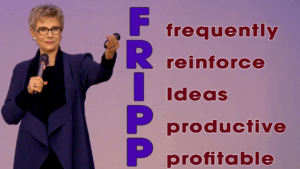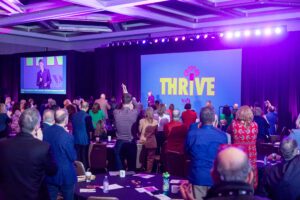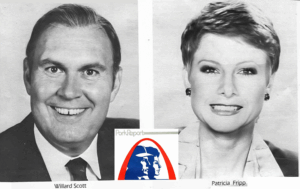January 18 is my personal anniversary. It is the day I arrived in the United States.
When people ask, “Why did you come to America at age 20 with no job, no contacts, and $500?” my honest answer is, “It seemed like a good idea at the time.”
And it did.
At that point in England, expectations for young women were modest, at best. I had met exactly two people who had ever been to the United States. Like many, I knew America through Hollywood movies. Big dreams, bold personalities, and the promise that anything might be possible.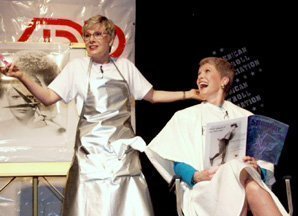
I will not tell you how many decades ago that was. Let’s just say… a few.
Looking back, I smile at the confidence of youth. The certainty that nothing could possibly go wrong. That sense of adventure, mixed with ignorance and optimism, can be a powerful combination.
Whenever I think of that moment in my life, I think of my dear friend Layne Longfellow, PhD. CPAE who passed away in 2019. Layne was my favorite speaker to watch, bar none.
Layne earned a PhD in experimental psychology after graduating Phi Beta Kappa, magna cum laude, from Ohio University. He became internationally known as a professional speaker and worked with major corporations as Director of Executive Seminars for The Menninger Foundation before dedicating himself fully to speaking and program design.
In 1978, at age 40, Layne founded Lecture Theatre, Inc., a forum for presenting provocative ideas through spoken word, images, graphics, music, and multimedia. His mission was simple and brilliant: deliver value-driven, thought-provoking ideas as entertainment. He transformed serious lectures into theatrical experiences long before “edutainment” became fashionable.
In more than 2,000 speeches and seminars, Layne spoke on topics ranging from stress and human skills to environmental issues and cultural diversity. What made him unforgettable was not just his content, but his distinctive platform style and the deep impression he left on audiences and colleagues alike.
One of Layne’s lines, which I still quote often, is this: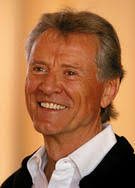
“The problem with life is that it does not live up to expectations.”
Layne credited that insight to Ralph Keyes and his book Life After High School. Layne explained it this way: if you are the high school football star or the prom queen, everything can feel downhill afterwards. Real life does not match the expectations created in those early years.
Perhaps that is why I cannot remember having any expectations at all.
When I arrived in America, I had no master plan. I did not know whether this would be a brief adventure or a permanent move. I simply came to see what might happen.
And that is why Layne’s quote resonates with me so deeply.
Because the reality of my life in America has exceeded my wildest expectations.
I found opportunities, challenges, friendships, mentors, clients, stages, and audiences beyond anything a young woman with $500 could have imagined. I found a profession I love and a calling that continues to energize me. I found a community through NSA colleagues, clients, and audiences who allowed me to do work that matters.
So today, I say thank you.
Thank you to my friends.
Thank you to my NSA colleagues.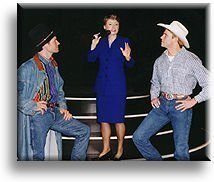
Thank you to my clients and the audiences who trusted me with their time and attention.
And most especially, thank you to Layne.
Rest in peace, my friend. I will never forget the night in Honolulu when we danced until 1 a.m. You were a unique human being, a brilliant mind, and a magnificent performer.
January 18 reminds me that sometimes the best decisions are not logical, carefully planned, or safe.
Sometimes, they simply seem like a good idea at the time.
“Fripp coaching for our conference presenters delivered outstanding results. Every participant performed at a higher level and commented on how valuable the preparation had been. Louie’s keynote segment, sharpened with this coaching, was superb.” Robert Hamilton, Senior Director, Product Marketing, Rubrik
“When Distech Controls engaged Fripp training to improve sales conversations and presentations, expectations were high. The customized approach—before, during, and after—combined with FrippVT online learning, directly resulted in more and larger sales. The program excited, informed, and coached the team to impressive new levels.” Scott Hamilton, VP of Sales, Distech Controls

 It is never too early to begin thinking about a speech.
It is never too early to begin thinking about a speech.